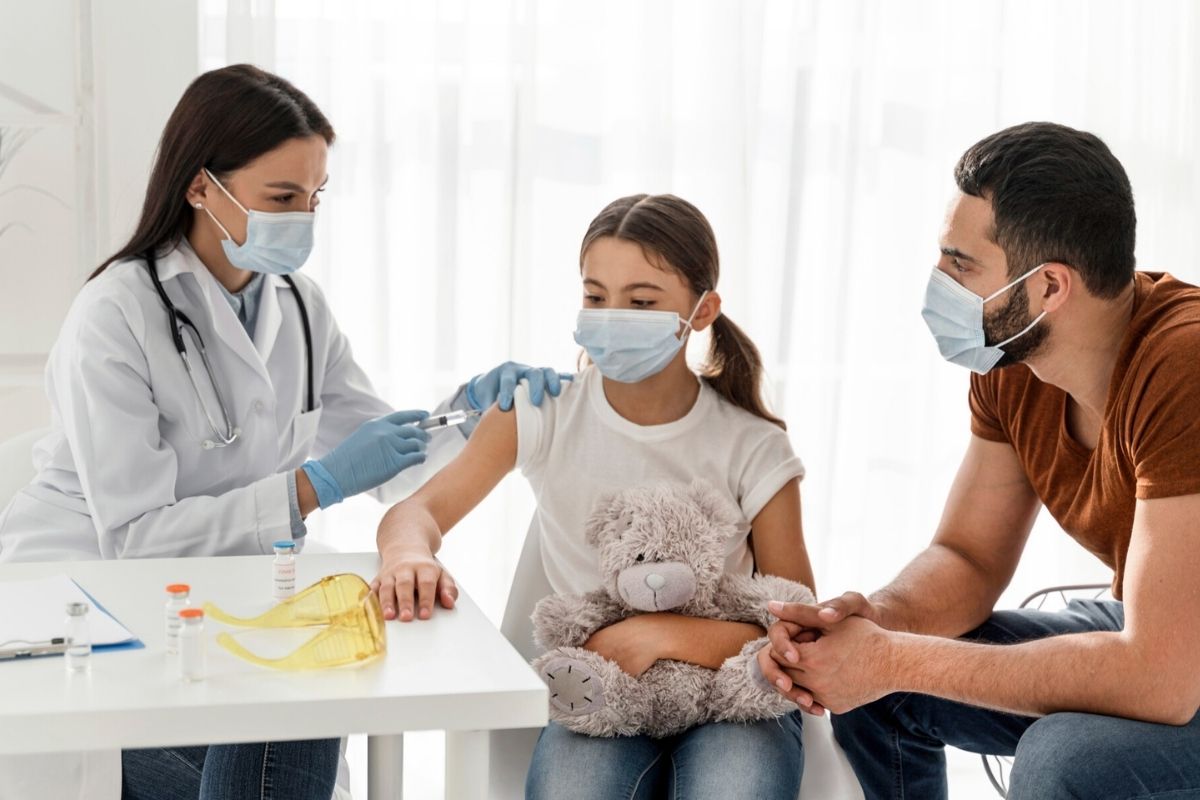Childhood is a beautiful stage of growth and development, but it is also a time when children are more vulnerable to infections. Their immune systems are still maturing, which makes them prone to catching illnesses from their environment, school, or even other children. While many childhood infections are mild and self-limiting, some may become serious if not treated on time.

Parents often find it stressful when their child falls ill frequently. Timely diagnosis and proper medical care not only help the child recover faster but also prevent complications. If you are seeking reliable childhood infections treatment in Sikar, Rajasthan, you will find valuable information tailored for families at Arihant Hospital & IVF Center.
Why Children Are More Prone to Infections
Children’s bodies are still building immunity, which means they cannot fight off germs as strongly as adults. Some reasons why infections are common in childhood include:
- Developing immune systems- Less exposure to pathogens makes them more susceptible.
- School and play environments - Close contact with peers increases the spread of viruses and bacteria.
- Poor hand hygiene- Children often forget to wash their hands properly.
- Frequent touching of the mouth, nose, and face- Increases the chance of catching germs.
- Nutritional factors - Lack of balanced nutrition may weaken immunity.
Common Childhood Infections
Here are some of the most frequently seen infections in children:
Respiratory Infections
- Cough, cold, flu, pneumonia, and bronchitis are common.
- Symptoms include a runny nose, cough, fever, and breathing difficulty.
Gastrointestinal Infections
- Diarrhea, vomiting, food poisoning, and rotavirus infections.
- The main concern is dehydration due to fluid loss.
Ear Infections
- Often seen after a cold or flu.
- Symptoms include ear pain, irritability, fever, and trouble hearing.
Skin Infections
- Impetigo (bacterial skin infection), fungal infections, and chickenpox are common examples.
- Symptoms include rashes, blisters, or itching.
Urinary Tract Infections (UTIs)
- More common in girls (2 years and older).
- Symptoms include pain while urinating, frequent urination, and fever.
Childhood-Specific Viral Infections
- Measles, mumps, rubella, and hand-foot-and-mouth disease.
- These can be prevented through timely vaccinations.
Send Us A Message
Signs & Symptoms Parents Should Watch out For
Some infections are mild, but others may need urgent attention. Parents should pay attention to the following symptoms:
- Persistent high fever
- Breathing difficulty or fast breathing
- Severe diarrhea or vomiting
- Reduced urination (sign of dehydration)
- Extreme tiredness, drowsiness, or irritability
- Widespread skin rashes with fever
- Poor feeding or refusal to eat
If any of these warning signs appear, consult a doctor immediately. Early care ensures a faster recovery and reduces the risk of complications.
Treatment for Childhood Infections
Treatment depends on the type of infection, its severity, and the child’s age.
For Viral Infections
- Most viral infections, like common colds, resolve on their own.
- Treatment focuses on rest, fluids, and fever control with safe medications.
For Bacterial Infections
- Antibiotics are prescribed for conditions like bacterial pneumonia, ear infections, or strep throat.
- Completing the full antibiotic course is crucial to preventing antibiotic resistance.
For Gastrointestinal Infections
- Oral rehydration solution (ORS) is essential to replace lost fluids.
- In some cases, zinc supplements are recommended.
- Severe dehydration may need intravenous fluids in a hospital.
For Skin Infections
- Antifungal creams or oral medicines are prescribed for fungal infections.
- The doctor may give antibiotic ointments for bacterial skin infections.
- Soothing creams or lotions for viral rashes like chickenpox.
For UTIs (2 years & older)
- A urine test confirms the infection.
- Antibiotics are prescribed depending on the cause.
Prevention of Childhood Infections
While not every infection can be prevented, many steps can reduce risk:
- Vaccination – Following the immunization schedule is the best protection.
- Hand hygiene – Teaching children to wash their hands properly before meals and after play.
- Nutrition – Balanced diets with fruits, vegetables, and proteins boost immunity.
- Hydration – Ensuring children drink enough clean water.
- Avoiding sick contacts – Keeping children away from others who are unwell.
- Safe food practices – Washing fruits and cooking food thoroughly.
Why Choose Arihant Hospital & IVF Center for Childhood Infections?
- Experienced pediatricians trained to handle a wide range of childhood illnesses
- 24/7 availability for emergencies like severe dehydration or high fever
- Child-friendly environment to reduce anxiety during treatment
- Advanced diagnostic facilities for quick results
- Preventive care with immunization and parental counseling
Families seeking childhood infections treatment in Sikar, Rajasthan can rely on Arihant Hospital & IVF Center for safe, reliable, and compassionate care for their children.
Cost of Childhood Infections Treatment
The cost of treating childhood infections can vary depending on the type of infection, its severity, and whether hospitalization is required. For most common conditions like coughs, colds, or mild ear infections, the treatment is generally affordable and may only involve consultation charges and basic medications.
For more serious infections such as pneumonia, severe diarrhea, or urinary tract infections, costs may increase due to diagnostic tests (like blood tests, urine tests, or X-rays) and prescribed medicines. In rare cases where a child requires hospital admission for intravenous fluids or intensive care, the expenses may be higher.